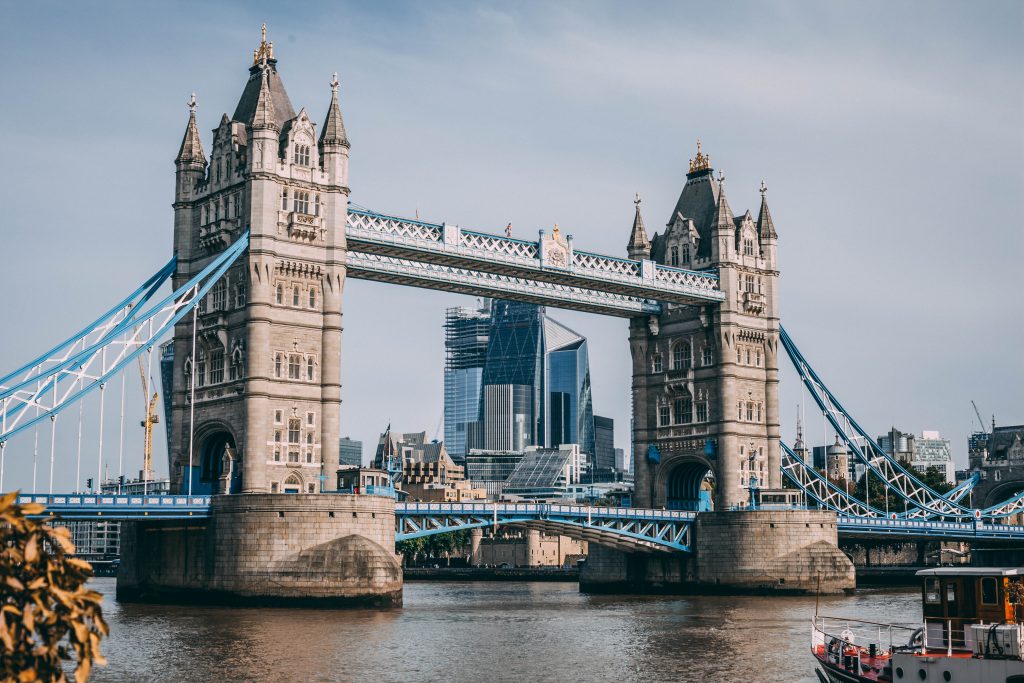29-year old lonely Londoner, David Gradon, set up a widespread project to help those in their 20s and 30s make meaningful friendships in the city
In a survey conducted last year by Campaign to End Loneliness, 700,000 Londoners reported “often” or “always” feeling lonely. The report that followed noted five key characteristics that were closely associated with severely lonely people, two of which include being single or living alone; and going through significant life changes.
Additionally, young people between the ages of 16 and 34 in the UK are disproportionately at risk of feelings of chronic loneliness – that’s “always” or “often” feeling lonely, along with disabled people, the LGBTQ+ community and those on a low income. Research shows that this age group are at five times greater risk of chronic loneliness than those aged 65 or older. As a result, this age group are on a widespread quest for friendship in the city.
The Great London Friendship Project: Where It All Began
The Great London Friendship Project is the birthchild of 29-year-old David Gradon, based in Wandsworth, London. Gradon had been experiencing feelings of loneliness since he left university and moved to London in 2014. During the pandemic, Gradon endured a break-up with his long-term girlfriend of 4.5 years whom he lived with, whilst struggling with the remoteness of his work as a Community Manager for the social operating system Pally.
Desperate for his feelings of loneliness to subside, once restrictions eased, Gradon turned to dating apps to fill the void of disconnection. However, he quickly realised how incompatible his needs were with this surface-level form of modern matchmaking. It felt “wrong” to put so much pressure on meeting a romantic partner who’d fulfil his need for connection; being so fresh out of a break-up. So, he turned to Google to make platonic friendships instead.
His question – “How do I make friends as an adult?” – shifted into months of him trying everything from running clubs to single life drawing to friendship apps. Nothing worked. Much like dating apps, none of these search-engine-advised activities satisfied the itch of meaningful connection that Gradon desired. He experienced a series of failed attempts at sustaining new friendships and longed for a sense of community.
“I had amazing chats with people in their 40s and 50s,” Gradon tells me on a call. “But I quickly realised these weren’t going to be the people I hang out with regularly”. Whether it was that they had kids to get home to, their wife to meet for a date night or work to wake up early for, Gradon had no luck in meeting people his age to enjoy life in the city with. With having a large proportion of friends of a similar age, in the local area being linked to reduced feelings of loneliness; it’s no wonder Gradon felt lonely in the city.
The First Ever “Social Walk”
In November 2021, Gradon took it upon himself to find like-minded, similarly-aged people to hang out with. He set up a Facebook group for people in their 20s and 30s to meet for a walk around Hampstead Heath on a Sunday afternoon. A dozen people showed up. Gradon had prepared a few games in advance to break the ice between strangers. Hours later, exceeding expectations, the group ended up in a pub where they talked deep into the autumnal evening.
34-year-old Researcher, Christian, was one of the twelve who attended Gradon’s first event back in November 2021. “For most of 2020 and 2021, the pandemic had made it more difficult to socialise than before,” he tells me. David’s first “Social Walk” came at a great time for Christian as “it offered the opportunity to meet new people and explore a nice part of London together. I remember that it was a special experience for us”.
Gradon purposely wanted to create a community of people with like-minded responsibilities, routines, and social needs. For example, how regularly they want to meet up and how long they want to hang out for. “This age group generally don’t have a family to look after or, if they’re students, a strict 9-5 to structure their day around,” Gradon says. Over the next few weeks and months, the group quadrupled in numbers, with young members bringing their friends and housemates to experience the project, too.
Since then, Gradon has arranged weekly Sunday Social walks all over the city – from the canals of Little Venice to the marshes of Hackney Wick. The high demand for the event required Gradon to cap the walks at 100 per week while hosting two more events during the week – usually a board game night on a Wednesday and a Friday Night Social at the end of the working week. Just over two years later, TGLFP is now made up of over 30,000 members in their 20s and 30s worldwide, who are supporting the project and participating in events when they’re in the city.
The Future of The Project
Gradon wants TGLFP to provide young adults with a straightforward answer of where to go when they’re feeling lonely and want to make friends. It’s for this exact reason that Gradon emphasises the importance that the walks, activities and events are free for whoever signs up. “We shouldn’t be putting up more barriers to connection,” he says. “As soon as you start charging, people become customers rather than community members”.
After working what essentially felt like two full-time jobs, Gradon quit his role at Pally in May 2023. Since then, he’s been working full-time – earning just enough money to keep him afloat – to grow the TGLFP community through partnerships and funding he raises during the weekdays. Ultimately, he’s sacrificing the stability of a 9-5 income to keep events, taking place on evenings and weekends, free. To assist with his workload, Gradon has a team of six organisers who help him host events throughout the week. However, as the only full-timer, Gradon does most of the hosting of events and daily admin; hoping the widespread social impact of the project will eventually enable him to employ more staff.
In a city where loneliness is more common than we like to think, TGLFP acts as an anchor for young adults to make meaningful connections – and keep them, too.
Featured Photo by Charles Postiaux on Unsplash.



